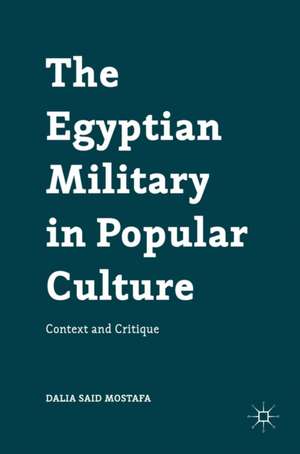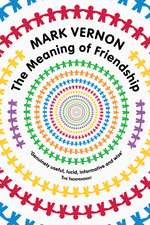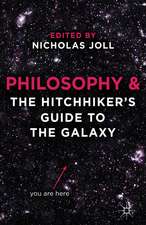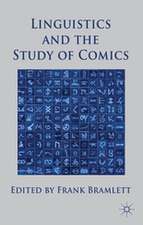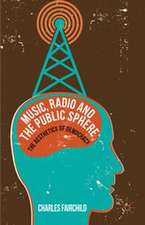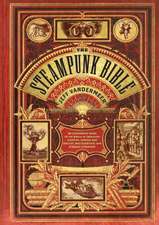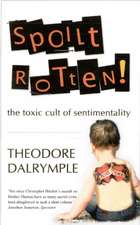The Egyptian Military in Popular Culture: Context and Critique
Autor Dalia Said Mostafaen Limba Engleză Hardback – dec 2016
Preț: 383.93 lei
Nou
Puncte Express: 576
Preț estimativ în valută:
73.47€ • 76.86$ • 61.03£
73.47€ • 76.86$ • 61.03£
Carte tipărită la comandă
Livrare economică 02-16 aprilie
Preluare comenzi: 021 569.72.76
Specificații
ISBN-13: 9781137593719
ISBN-10: 1137593717
Pagini: 162
Ilustrații: XIII, 144 p. 4 illus.
Dimensiuni: 148 x 210 x 18 mm
Greutate: 0.32 kg
Ediția:1st ed. 2017
Editura: Palgrave Macmillan UK
Colecția Palgrave Macmillan
Locul publicării:London, United Kingdom
ISBN-10: 1137593717
Pagini: 162
Ilustrații: XIII, 144 p. 4 illus.
Dimensiuni: 148 x 210 x 18 mm
Greutate: 0.32 kg
Ediția:1st ed. 2017
Editura: Palgrave Macmillan UK
Colecția Palgrave Macmillan
Locul publicării:London, United Kingdom
Cuprins
Introduction: Multi-Layered Images of the Egyptian Military in Popular Culture.- 1.Popular Images of Army Officers and Freedom Fighters as National Heroes in the 1950s and 1960s.- 2.Various Representations of the Martyred Soldier in the 1967 June War and the Victorious Hero in the 1973 October War.- 3.Transformation of the Popular War Hero’s Image under Mubarak and the Breakout of the 2011 January Revolution.- Conclusion.The Undoing of the Revolutionary Discourse and the ‘Legitimisation’ of the Counter-Revolution with Sisi’s Presidency
Notă biografică
Dalia Said Mostafa is Lecturer in Arabic and Comparative Literature in the Department of Middle Eastern Studies at the University of Manchester, UK. She has published extensively in both Arabic and English on the contemporary Arabic novel, Arab cinema, and popular culture in Egypt. She is the editor of a special issue entitled ‘Women, Culture, and the January 2011 Egyptian Revolution’, in the Journal for Cultural Research (vol. 19.2, 2015).
Textul de pe ultima copertă
This book examines a key question through the lens of popular culture: Why did the Egyptian people opt to elect in June 2014 a new president (Abdel Fattah al-Sisi), who hails from the military establishment, after toppling a previous military dictator (Hosni Mubarak) with the breakout of the 25 January 2011 Revolution? In order to dissect this question, the author considers the complexity of the relationship between the Egyptian people and their national army, and how popular cultural products play a pivotal role in reinforcing or subverting this relationship. The author takes the reader on a ‘journey’ through crucial historical and political events in Egypt whilst focusing on multi-layered representations of the ‘military figure’ (the military leader, the heroic soldier, the freedom fighter, the conscript, the martyred soldier, and the Intelligence officer) in a wide range of popular works in literature, film, song, TV drama series, and graffiti art. Mostafa argues that the realmof popular culture in Egypt serves as the ‘blood veins’ which feed the nation’s perception of its Armed Forces.
Caracteristici
Only study which tackles the issue of why the Egyptian military is viewed by Egyptians as a legitimate actor in politics Highly original analysis of the representation of multiple cultural formats and genres in different periods Interesting to scholars and students of Egyptian politics, culture and cultural politics
